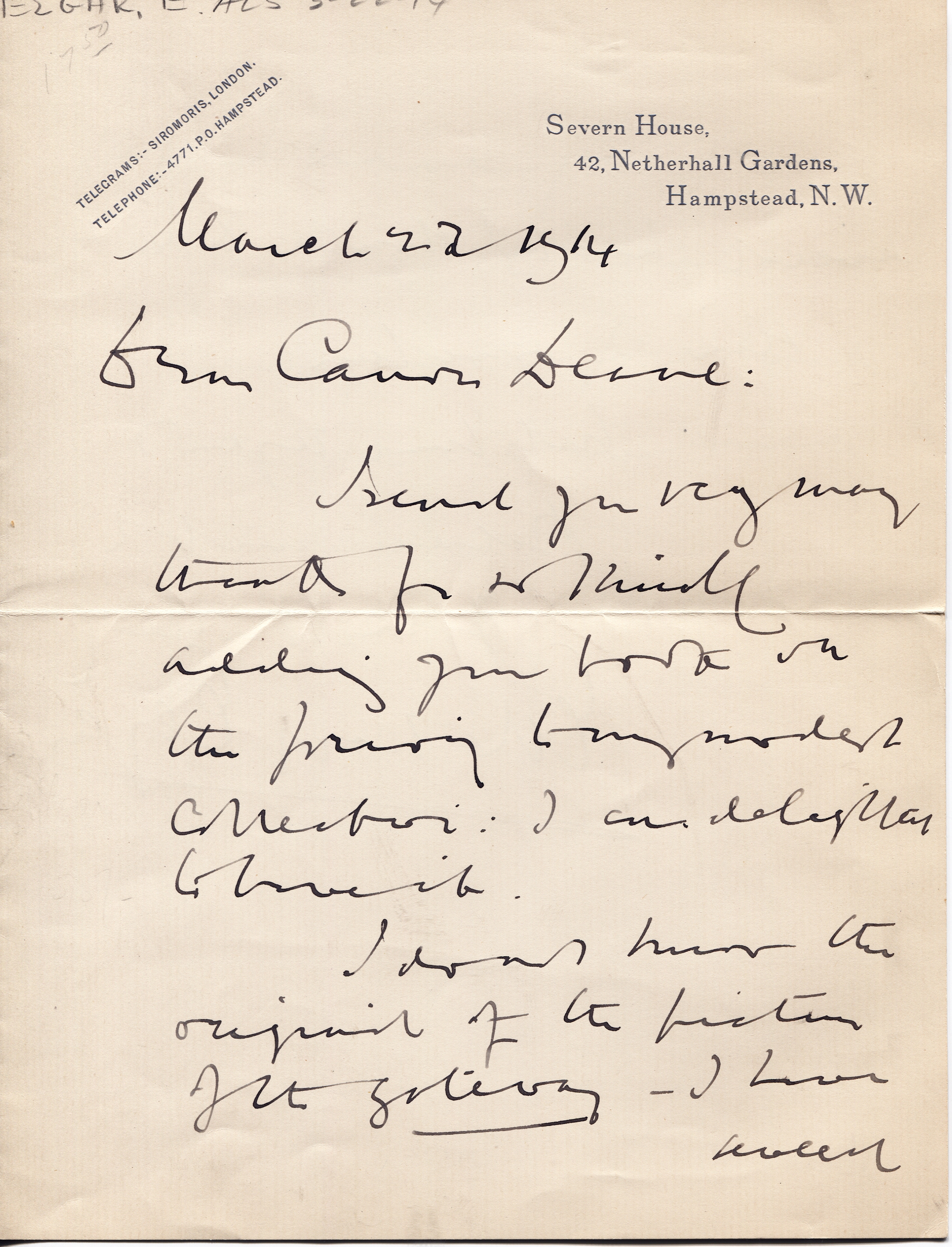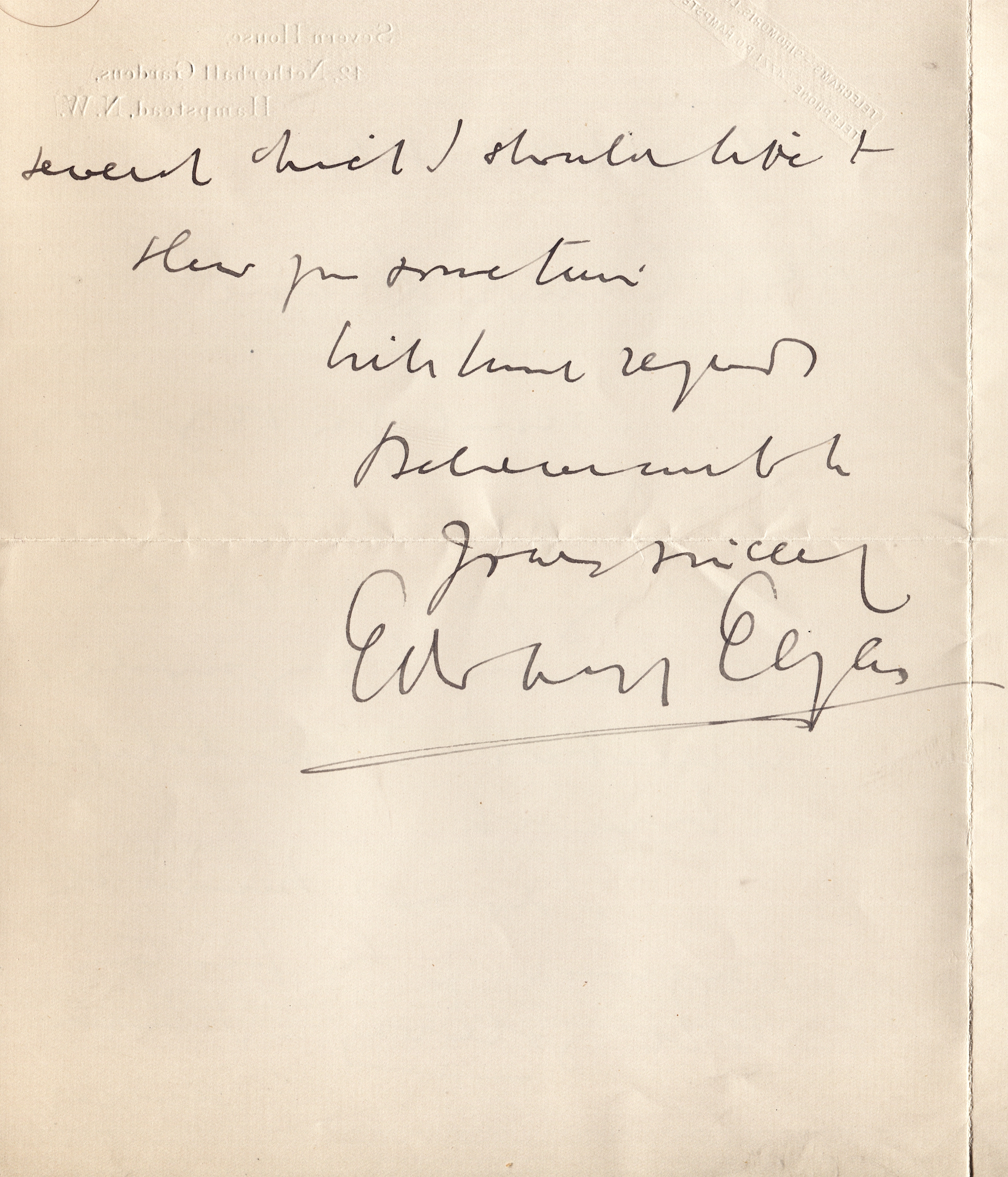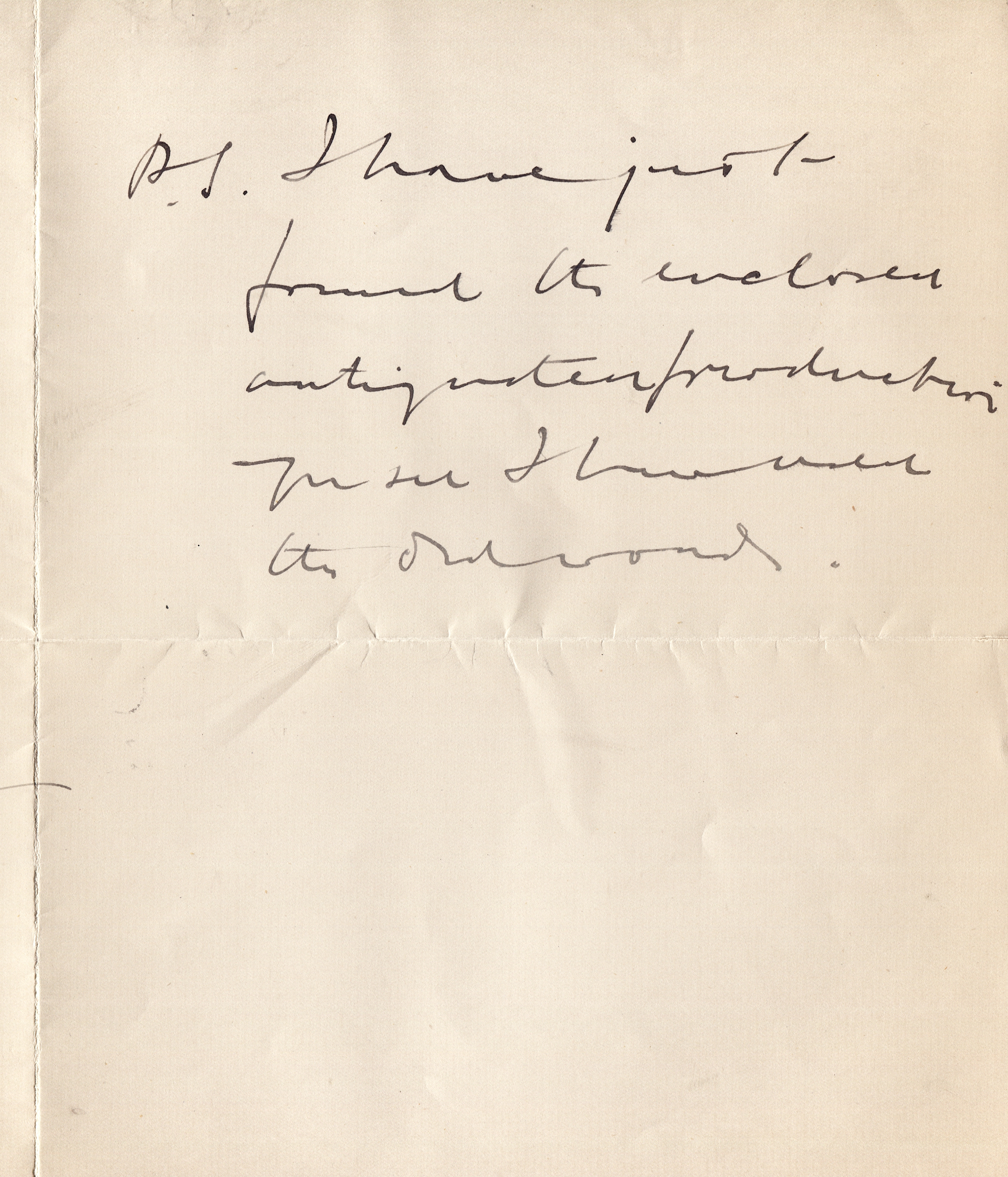
ELGAR
(Sir Edward, 1857-1934, Composer)
Autograph Letter Signed to Canon Dever
thanking him “for so kindly addig your book on the prory to my modest collection; I am delighted to have it. I don’t know the original of the picture of the gateway - I have several which I should like to show you sometime...” with a postscript that he has “just found the enclosed... notes on production, you see I have used the old words...”, 3 sides 4to., Severn House, 42 Netherhall Gardens, 22nd March
In June 1911, as part of the celebrations surrounding the coronation of King George V, Elgar was appointed to the Order of Merit, an honour limited to twenty-four holders at any time. The following year, the Elgars moved back to London, to a large house in Netherhall Gardens, Hampstead, designed by Norman Shaw. There Elgar composed his last two large-scale works of the pre-war era, the choral ode, The Music Makers and the symphonic study Falstaff. Both were received politely but without enthusiasm. When World War I broke out, Elgar was horrified at the prospect of the carnage, but his patriotic feelings were nonetheless aroused. He composed "A Song for Soldiers", which he later withdrew. He signed up as a special constable in the local police and later joined the Hampstead Volunteer Reserve of the army. He composed patriotic works, Carillon, a recitation for speaker and orchestra in honour of Belgium, and Polonia, an orchestral piece in honour of Poland. "Land of Hope and Glory", already popular, became still more so, and Elgar wished in vain to have new, less nationalistic, words sung to the tune.
Item Date:
1914
Stock No:
42261



<< Back